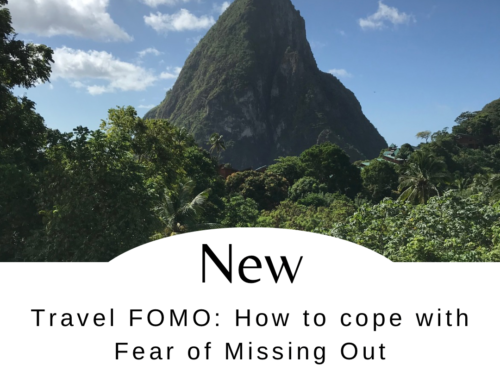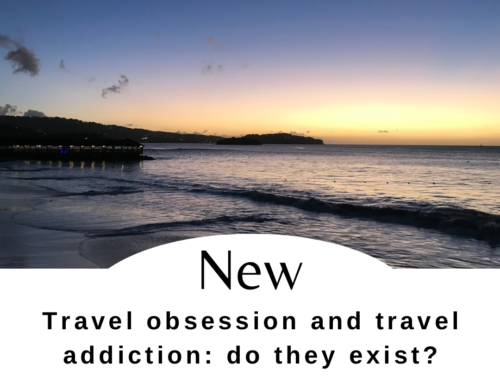By Dr Laura Wade (Principal Clinical Psychologist) and Tara Clegg (Assistant Psychologist)
ADHD and Travel Challenges
ADHD can present differently in every individual. However, the common symptoms are those of inattention, hyperactivity and impulsivity. They are by no means representative of everyone’s experience with ADHD and some may have more of these symptoms than others. Some common problems that may impact travelling can be:
Making Decisions
It can be hard to get a trip off the ground when you struggle with making decisions. People with ADHD can make them too slowly aka ‘decision paralysis’. Delaying decision making can lead to planning becoming rushed at the last minute – causing stress and further worsening ADHD symptoms.
On the other hand, impulsivity can mean making plans without a great deal of planning or thinking things through. This may mean planning a holiday that doesn’t fully meet your preferences or needs, which can be disappointing. Some people with ADHD will try to not to question a decision they have already made.
Time Blindness
Many people with ADHD struggle with Time Blindness, or the inability to accurately estimate how much time has passed. This makes travel really difficult because it means you may might miss flights, trains, or entire events. You may also find it difficult to estimate how much time tasks will take, like packing a bag in time to be ready. Setting timers or scheduling more time than needed can be useful ways to counteract this.
Hyperfocus
Hyper-focusing is where someone’s attention gets ‘too’ turned on, and they cannot be distracted and might forget what they should be doing. People with ADHD can really struggle to prioritise and plan their time well, particularly if they get stuck on something. Lots of people with ADHD report liking their hyperfocus and describe it as a superpower because, when it kicks in, they can be highly productive. However, it is also a potential danger if they need to be doing something else. Again, you might find it useful to use timers or alarms, to ping yourself out of hyperfocus if you are alone. If you have people around you, you can ask them to monitor you when you really become stuck into something, and to give you a gentle reminder when its time to go.
Forgetting /Losing Items
If you have ADHD you likely have some strategies for remembering things already, like lists, always keeping your keys in the same place or having a huge bag with everything in it. We tend to think of people with ADHD as either a huge bag or no bag at all type of people. However, when you are travelling, you have to remember more things, like your passport, that you may not normally carry around. Use a similar strategy to the one you use at home but maybe also think about keeping your very important items with the hotel or asking your travel companion to keep hold of them.
If you travel often, using the same travel bag and keeping things in the same place can be helpful. Some people like to keep a ‘holiday drawer’ or box with all of their travelling things like sunglasses, sun creams and travel toiletries.
It can be helpful to put a tracker on your phone so you can find it in an unfamiliar place. You can try making a little song or rhyme and do this whenever you leave a place (e.g. glasses, passes, wallet and phone!)
Getting Lost
People with ADHD can limited working memory and really struggle with directions given verbally. Therefore you may find maps more helpful However, lots of people with ADHD may prefer not to use a map and to go off the beaten track.
Taking a photo of locations, such as a photo of the street sign for the hotel you are staying at, will allow you to ask for directions if you forget the place’s name – especially if it is in another language.
Sensory Overwhelm
Crowds, confrontations with strangers, loud noises… These are all part and parcel of travelling and can be overwhelming, especially if you have sensory processing issues on top of ADHD. Lots of people with ADHD can find all these things really overwhelming. Therefore, having relaxation/wind down time is really important so that sensory overwhelm doesn’t lead to emotional overwhelm too. Remember to bring your headphones or ear plugs on a trip to a city centre. Taking half an hour to yourself in the corner of a coffee shop can help you to manage the overwhelm and feel more relaxed for a bit more exploring or sightseeing.
Difficulty Relaxing
Contrary to needing wind-down time can be needing a lot of newness and stimulation. Lots of people report restlessness as part of their ADHD and a need to always be busy and to get the most out of the trip. If you have ADHD, you may be very easily bored or enjoy activities where you are expected to relax and be quiet. For those around them, this may be exhausting. Maybe plan an alternative activity to do whilst other people take a break. There may be times when you will need to split up from your travelling companions to give each other space.
Advice
So now that you have thought about some of the difficulties that may come up you can start to plan your lovely trip. First things first…
Making the holiday plans….
As we’ve talked about already people with ADHD can often say that they make decisions either very quickly or get completely stuck in research and paralysed into deciding anything.
When you start planning your trip, it may be beneficial to view the task in smaller steps, such as travel/flights, accommodation, and activities. We would recommend that you make a plan for how much time you are going to spend planning i.e. 2 hours to start and have aims for what would be decided i.e. type of holiday/location.
Then do this again another day and make another plan e.g. another two hours to come up with a basic itinerary and some ideas for how to get there. Set a timer and by the end of the two hours write these plans down. If you decided on your first choices straight away, then use the time to confirm this with yourself by looking at other options -you might change your mind. Keep the browser tabs to a limit too!
Remember that booking a holiday can be quite overwhelming for most people as there are so many choices and it can be a complex task. Breaking the steps down into manageable chunks can mean that you have more time to think things through and this is much more likely to result in a travel plan that really meets your needs and preferences.
If you have decided to take a trip based on something that you have read/heard/seen, talk about this decision with someone you trust. Leaving 24-48 hours before you book can be a great way to allow yourself to think before booking. You could even put a note in your calendar to remind yourself to book.
You’ve made the plan, now what next.
Before you leave
Finish your final jobs. If you haven’t paid the gas bill before leaving, you may find yourself at the beach worrying about a late fee or cutoff notice. Before you go away, make a list of things that need doing and then do them. This should include things like making sure the insurance is paid and sending your travel information to someone at home. People with ADHD often procrastinate more than most people so it is important to have a strategy for tackling these more mundane tasks. If you need someone to remind you, send them the list too.
Make a clear list of what you are taking. People with ADHD can have problems with organising their ideas and remembering things. So it’s good to make a list of what you need to take on holiday. Make two copies of your list. When packing for your trip, cross off items as you put them in your suitcase. Do the same when you pack for home, so you avoid leaving things at your hotel. Save your lists to use for future vacations.
A helpful packing list can be found here: https://www.additudemag.com/download/master-packing-list/
In terms of packing for ADHD, before you pack the bikini remember to pack your ADHD medication and letter from your prescriber! Some people don’t take medication for their ADHD and others on stable regimes may want a medication holiday too, and this is fine. However, if you are going to want to take your medication on holiday then you need to take the tablets and a letter confirming the dose and the prescribe information especially if you are on a stimulant variety (e.g. Concerta, Elvanse etc). Many of these drugs are ‘controlled substances’ and therefore moving them from country-to-country need is not the same as taking over-the counter medications. Please see: https://www.gov.uk/travelling-controlled-drugs. Also put your meds and the accompanying letter in your carry-on – not your checked luggage.
It also may be worth investing in some extra insurance for lost items.
When you are on the trip….
Give yourself extra time. For those with ADHD, time can be difficult to manage. But schedules play an important role in a vacation. Hotels charge for late check-outs. And airlines and cruises often require early check-ins — arrive late, and you could miss your whole trip. It may be worth informing hotels/ B&Bs, and activity providers that you have ADHD. Discrimination law will still apply to many of these situations, so you should not feel that you cannot tell people if you need to.
Stay on schedule. Use watches with alarms and digital apps. If you’re travelling with your family, designate a timekeeper for your group. Set goals and plan where you want to be by when. Avoid arriving at the last minute to allow for unforeseen events, like traffic, and spur-of-the-moment meal stops. Use Google Maps to estimate travel time (and then maybe add some extra time for diversions).
Budgeting Decide how much spending money you are going to allocate and divide this by the number of days so that you have a set daily limit. Make sure to stick to this. Put the money in a separate account if you need to so that you can see how much you have left.
Plan a backup system. Make copies of your travel documents. Keep a copy with you on vacation (separate from the originals) and leave a copy with a friend at home. If you lose your originals, you can still prove who you are and where you’re from. Take extra medication with you, and keep it separate from your main supply, in case it gets lost or you are delayed. If you have any important documents, think about putting as many as you can on your phone or Apple wallet.
Keep a phone charger in your bag. Keep a charger in your ‘go-to’ bag – if you need it, you only have to find a plug socket! If you forget your charger, you don’t need to worry because you already have one in your bag. Also consider bring a portable charger, if you use your phone a lot to organise yourself.
Consider wearing a Sunflower lanyard. Launched in 2016 in the UK by Hidden Disabilities, and now recognised globally, the Sunflower Lanyard is worn by people with invisible disabilities and aims to ‘make the invisible visible’, encouraging compassion from others. The lanyard signifies that the person wearing it may need additional support, and there is no obligation to share why it’s being worn. There may be similar systems in the country/countries you are travelling in if they don’t use the Sunflower.
Keep some form of journal/holiday diary.People with ADHD can sometimes have problems with their own chronological memory i.e. not being able to remember what has gone on in their own life. If you’ve spent a lot of money on a holiday you will want to be able to remember it. There are different ways that you could record your experiences so that you can revisit them later, so choose the one that is right for you. Some people wil take a paper journal and write down their experiences, some will choose to use a diary app or you may choose to take photographs of your experiences so that you can look back at these.
Read personal blogs It can be helpful to read about the experiences of people who have ADHD themselves. Some tips will work for you and some won’t. Travelling with ADHD is not impossible, even if you have had poor experiences in the past. It can be a wonderful way to gather new experiences and create some wonderful memories.
References
Simon, V. , Czobor, P. , Bálint, S. , et al: :Prevalence and correlates of adult attention-deficit hyperactivity disorder: a meta-analysis. Br J Psychiatry194(3):204–211, 2009
Authors note: We do not have ADHD ourselves but as psychologists we have worked with hundreds of people with ADHD and also the common co-morbid traits of ASD or anxiety. Our perspective is based on a broad knowledge of ADHD rather than an in-depth knowledge of the condition as from an individual perspective. We feel that both have value so am pleased to note down our advice for travelling if you have ADHD or if you are travelling with someone with ADHD. We hope that it is useful.
ADHD advice and information has increased significantly in recent years, which is both a brilliant and daunting thing. ADHD is what is called a neurodevelopmental condition. This means that it starts in childhood and can affect people for their whole lives. ADHD, or Attention deficit hyperactivity disorder, affects 1/50 – 1/20 people (Simon et al, 2009) and usually comes in two types; ADHD – combined type (where people have symptoms of both inattention and hyperactivity combined with impulsivity) and ADHD – inattentive subtype, also known as ADD, where only the symptoms of inattention are present (Most adults tend to find that their inattentive symptoms remain over the lifespan and these actually can cause the most problems for them especially when travelling.)
Example Travel Letter for those taking ADHD medication overseas.
This letter needs to be written by your prescribing health care professional and this is just an example of what could be written. It is illegal to write one yourself as you would be impersonating another person i.e. fraud.
To Whom It May Concern,
Diagnosis: Adult ADHD – Combined Sub Type.
Treatment: Concerta XL 18mg
The above patient is a current client of the UK ADHD Clinic. He/she/they will be traveling to Dublin on holiday from 1.1.2020 until 1.2.2020. Please see flight details below:
He is currently prescribed Elvanse 70mg daily (1 x 70mg capsule in the morning) and will have in his possession enough medication to cover this period.
The prescriber is: Dr Joe Bloggs of the London GP Surgery.
The overseeing Medical Consultant is: Dr Josephine Bloggs of the UK ADHD Clinic.
If you have any queries please do not hesitate to contact me on the above number.
Yours faithfully,
If you liked this article, please check out our Travel and mental health guide (part 1)





